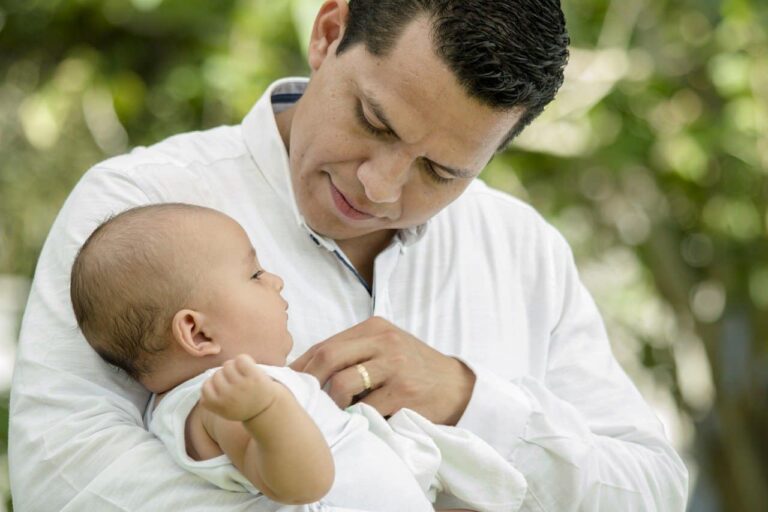Are You a Type C Parent? Take This Quick Quiz
Did you know that understanding your parenting personality type can significantly impact your relationship with your children? Research suggests that recognizing your parenting tendencies is crucial in fostering a more harmonious family environment.
As a parent, you’re likely to exhibit characteristics from various personality types, but identifying your dominant type can be transformative. Type C parents, in particular, have distinct traits that set them apart. This quiz is designed to help you uncover whether you embody the qualities of a Type C parent.
By understanding your type personality, you’ll gain insights into your strengths and areas for improvement, ultimately enhancing your parenting approach.
Key Takeaways
- Understanding your parenting personality type can improve family dynamics.
- Type C parents have unique characteristics that influence their parenting style.
- This quiz helps identify your parenting tendencies and provides insights into your strengths.
- Recognizing your personality type is the first step toward more effective parenting.
- Self-awareness is key to leveraging your natural strengths as a parent.
Understanding Parenting Personality Types
The concept of personality types has been around for decades, influencing various aspects of our lives, including parenting. This concept has evolved significantly since its inception.
The Evolution of Personality Type Theory
In the 1950s, cardiologists Meyer Friedman and Ray H. Rosenman introduced the Type A and Type B personality classification system, hypothesizing that certain personality types could predispose individuals to coronary disease. Although the direct link between Type A personality and heart disease is no longer widely accepted, the idea of personality types has remained popular and has since expanded to include Types C and D.
How Personality Types Influence Parenting Styles
Research has shown that personality types directly influence parenting styles, affecting communication approaches, discipline methods, and overall parenting outcomes. For instance, Type C parents are known to combine perfectionism with attention to detail without the aggression seen in Type A personalities. Understanding your personality type can help you recognize your natural parenting strengths and areas for growth.
Why Knowing Your Type Matters
Self-awareness about your parenting type can help you adapt your approach to better meet your child’s unique needs, reducing stress and improving family harmony. By understanding your personality type, you can leverage your strengths and work on your weaknesses, ultimately becoming a more effective and supportive parent.
What Makes a Type C Parent Unique?
Type C parents stand out due to their unique blend of analytical thinking and creative problem-solving skills. They are characterized by their detail-oriented nature, which significantly influences their parenting style.
Type C Parent Strengths
Type C parents excel in creating a structured environment for their children, leveraging their analytical minds to solve problems logically. As detail-oriented perfectionists, they provide well-thought-out explanations, teaching children valuable problem-solving skills and critical thinking. According to
“The way we talk to our children becomes the way they talk to themselves.”
This highlights the importance of Type C parents’ methodical communication approach.
Type C Parent Challenges
Despite their strengths, Type C parents may face challenges such as perfectionism and difficulty with spontaneity. Their tendency to overthink parenting decisions can sometimes hinder their ability to respond to situations intuitively.
How Type C Differs from Types A, B, and D
Type C parents differ significantly from other personality types. Unlike Type A parents, who are competitive and impatient, Type C parents focus on detail and analysis. Type B parents are more relaxed and social, whereas Type C parents are more reserved and methodical. Type D parents are cautious and routine-loving, but Type C parents balance structure with creative problem-solving. This distinction is crucial in understanding how Type C parents approach discipline, communication, and emotional support differently.
How Your Parenting Type Affects Your Child
Type C parents bring a unique set of traits to parenting, affecting their children’s lives in various ways. Their analytical and detail-oriented approach can have a significant impact on various aspects of their child’s life.
The Impact on Child Development
A Type C parent’s approach can significantly influence their child’s cognitive development and problem-solving abilities. Research shows that children of Type C parents often develop strong critical thinking skills. However, they may sometimes feel pressure to meet high standards set by their parents.
Communication Patterns with Children
Type C parents typically engage in logical explanations, clear expectations, and thoughtful discussions with their children. This communication style can help children develop strong vocabulary and reasoning skills. However, it might sometimes lack emotional expressiveness, which is an important aspect of parent-child interaction.
Technology Management Approaches
Type C parents usually manage technology use by creating clear rules, explaining the reasoning behind limits, and being consistent with enforcement. They often research age-appropriate content and use technology as an educational tool, helping their children navigate the digital world effectively.
Are You a Type C Parent? Take This Quick Quiz
Are you a Type C parent? Find out by answering these five crucial questions. This quiz is designed to help you understand your parenting personality type and how it influences your child’s development.
Handling Technology Use
Your child is at a restaurant and pulls out their phone. What do you do?
- A) Let them use it as long as they’re not disturbing others.
- B) Ask them to put it away to focus on the meal and family time.
- C) Set specific rules for phone use during meals.
Quality Time Approach
Your child has been on their phone for three hours, and you’d like to spend quality time together. What’s your approach?
- A) Join them in their activity to bond.
- B) Ask them to stop and engage in a different activity together.
- C) Set aside a specific time later to spend together.
Privacy and Boundaries
You ask about your child’s social media activities, but they don’t want to share. What do you do?
- A) Respect their privacy but express concern.
- B) Insist on knowing to ensure their safety.
- C) Discuss boundaries and why you need some information.
Social Media and Online Safety
Your child is talking to someone they’ve never met in real life. What’s your reaction?
- A) Trust their judgment but stay vigilant.
- B) Be concerned and investigate further.
- C) Educate them on online safety and monitor interactions.
Balancing Academic Performance and Social Life
Your child’s grades are poor, but they’re very popular. How do you react?
- A) Focus on improving their grades first.
- B) Encourage them to balance both aspects.
- C) Discuss the importance of academics over social popularity.
Scoring Your Quiz
For each question, score 1 point for every A) answer, 2 points for every B), and 3 points for every C). Add up your points to get your total score out of 15.
Interpreting Your Score:
- 5-8 points: You tend towards a more relaxed parenting style.
- 9-11 points: You balance between different parenting approaches.
- 12-15 points: You’re likely a Type C parent, known for being detail-oriented and proactive.
Understanding your score provides insights into your parenting personality type. Most parents exhibit traits from multiple categories, so use this quiz as a guide to better understand your parenting tendencies.
Understanding Your Quiz Results
Your quiz results offer a unique window into your approach to parenting. By understanding your personality type and how it influences your parenting style, you can gain valuable insights into your strengths and areas for improvement.
Predominantly Type C Results
If your quiz results indicate that you’re predominantly a Type C parent, you’re likely analytical, detail-oriented, and methodical in your approach to parenting challenges. Type C parents tend to be thorough in their decision-making, often considering multiple factors before acting. When it comes to technology issues, discipline, and communication, Type C parents typically adopt a thoughtful and well-considered approach.
Mixed Type Results
Mixed type results suggest that you exhibit traits from multiple personality categories. For instance, a Type C/Type A combination might result in a parenting style that’s both detail-oriented and achievement-focused. A Type C/Type B blend could mean you’re analytical yet relaxed about rules and schedules. Understanding these combinations can help you appreciate your flexible approach to parenting.
What Your Score Reveals About Your Parenting Approach
Your quiz score provides insights into your natural tendencies and traits as a parent. By recognizing your strengths and potential blind spots, you can leverage your personality type to create a more effective and nurturing parenting approach. Whether you’re a predominantly Type C parent or a mix of types, understanding your results is the first step towards becoming a more self-aware and impactful parent.
Leveraging Your Type C Strengths as a Parent
As a Type C parent, you’re naturally inclined towards creating a structured and detail-oriented environment for your child. This personality type is characterized by being meticulous and organized, traits that can significantly benefit your child’s development.
Detail-Oriented Nature
You can leverage your attention to detail to create a structured learning environment. This helps with academic support, organizing family activities, and establishing consistent routines. For instance, you can create a study schedule for your child, ensuring they stay on top of their assignments.
Problem-Solving Skills
Your strong problem-solving skills can be applied to navigate parenting challenges effectively. Use your analytical thinking to help your child develop critical thinking and decision-making abilities. Encourage them to analyze problems and come up with solutions.
Balancing Perfectionism
While your high standards can be beneficial, it’s essential to balance perfectionism with flexibility. Accept that mistakes are a part of life and can be valuable learning experiences. By doing so, you’ll create a more supportive and less stressful environment for your child.

Conclusion: Embracing Your Unique Parenting Style
As you reflect on your parenting style, understanding your Type C personality can be a game-changer. By embracing your analytical nature and attention to detail, you can create a structured and supportive environment for your child to thrive. While personality types offer valuable insights, effective parenting stems from self-awareness and adaptability. Type C parents can leverage their strengths while working on potential blind spots, fostering a balanced approach to parenting. By doing so, you can raise children who benefit from your analytical thinking while developing emotional intelligence.
Embracing your authentic parenting style, while remaining open to growth, is key to creating the best environment for your child. Consider revisiting the quiz periodically as your parenting approach evolves over time.
FAQ
What is a Type C personality, and how does it relate to parenting?
A Type C personality is characterized by being detail-oriented, analytical, and reserved. As a parent, a Type C personality can bring a sense of stability and careful planning to their parenting approach, often focusing on creating a secure and organized environment for their children.
How can I determine if I’m a Type C parent?
You can determine if you’re a Type C parent by taking the quiz provided earlier or by reflecting on your parenting style and tendencies. If you find that you’re often meticulous, cautious, and focused on creating a stable home environment, you might be a Type C parent.
What are the strengths of being a Type C parent?
As a Type C parent, your strengths include being detail-oriented, having excellent problem-solving skills, and being able to create a stable and secure environment for your children. You’re also likely to be very organized and able to manage your household effectively.
How can Type C parents balance their perfectionism with flexibility?
To balance perfectionism with flexibility, Type C parents can practice self-awareness, recognizing when their need for control or perfection is becoming too rigid. They can also work on being more adaptable and open to change, understanding that flexibility is key to navigating the unpredictable nature of parenting.
Can a person’s parenting type change over time?
Yes, a person’s parenting type can evolve over time as they grow, learn, and adapt to new situations and challenges. Parenting styles can be influenced by various factors, including the child’s age, life experiences, and the parent’s own personal development.
How can understanding my parenting type improve my relationship with my child?
Understanding your parenting type can help you identify your strengths and challenges, allowing you to make conscious choices about how you interact with your child. By being more aware of your tendencies and behaviors, you can adapt your approach to better meet your child’s needs, ultimately strengthening your relationship.










